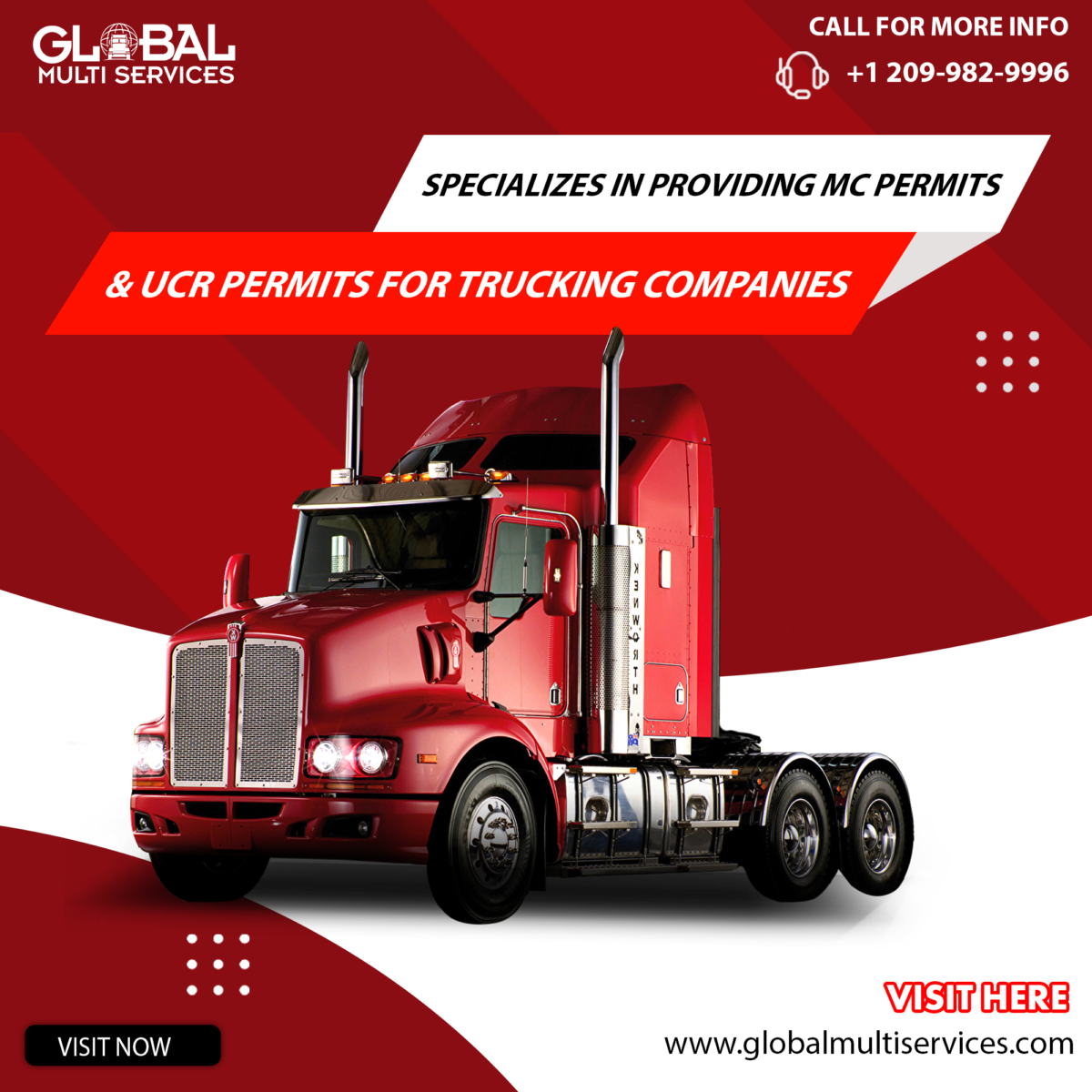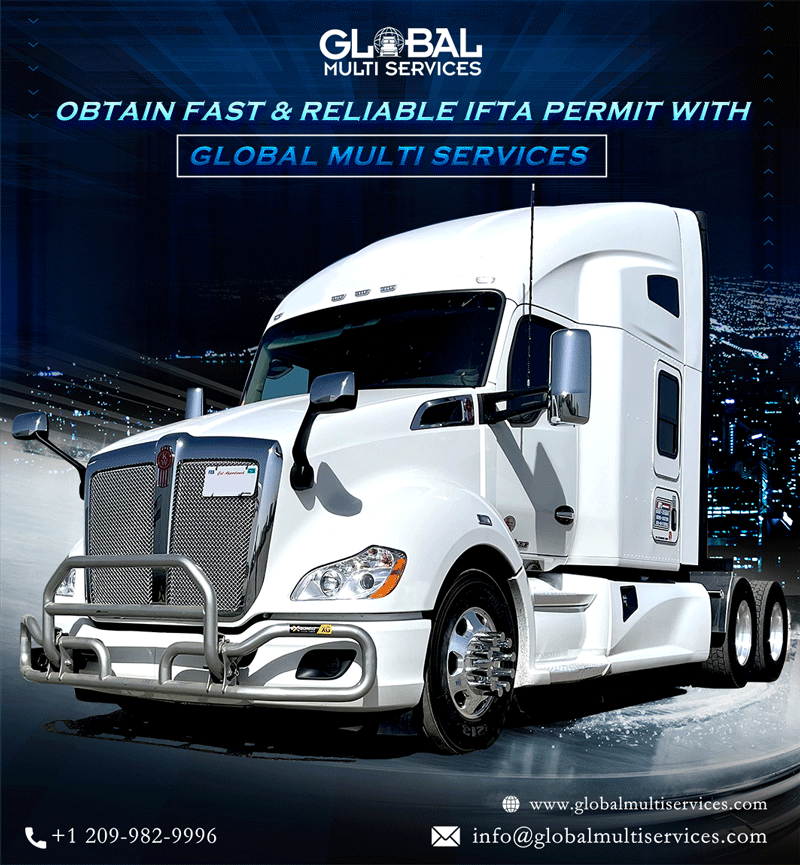Compliance plays a large part in how trucking companies operate in the United States. And the last thing you want is to be penalized for not complying with the Department of Transportation or Federal Motor Carrier Safety Administration regulations as a trucking company. It is paramount to stay on top of the laws to keep your employers and fleet safe while upholding the best standards as you transport loads across the interstate and intrastate boundaries. These include obtaining your MC Permit and other license.
Partnering with a trucking permit service provider who knows the ins and outs of trucking regulations can save you from penalties. Global Multi Services is here to help you stay up to date with the FMCSA regulations and assist you in filing your MC Permit when necessary. We will manage all your paperwork and ensure everything is fast and precise. Read on as we go over what you need to do to stay in compliance in the trucking industry.
OBTAIN MOTOR CARRIER PERMIT
Trucking companies operating commercially interstate and intrastate are mandated to apply for motor carrier permits. Motor carriers transporting federally regulated goods across state lines and intrastate must also obtain their MC Permit. These applications authorize their interstate travel and must be in place before they can operate legally. Some trucking services also require several MC Authorities. Therefore, check the Federal Motor Carrier Safety Administration website to know the operating authorities to stay compliant.
REGISTER FOR UCR PERMIT
The Unified Carrier Registration requires trucking companies to register and pay an annual fee in their base state if they participate in international or interstate commerce. The registration fee is based on the size of your fleet and must be renewed every year. Trucking companies must register with a participating neighboring state if their base state does not participate in UCR. According to law, motor carriers operating over state lines without paying their yearly fee will get pulled over and subject to fines and penalties.
EMPLOY QUALIFIED TRUCK DRIVER
Trucking companies involved in interstate and intrastate commerce must retain verification of their driver’s legal and physical ability to operate their fleet. Your drivers need to have proper qualifications for successful and safe operations in the United States.
DRUG AND ALCOHOL CONSORTIUM
According to federal law, all trucking companies must adhere to drug and alcohol testing requirements. Therefore, they must perform a drug and alcohol pre-test for truck drivers and other employers that have not participated in random DOT testing within the last 30 days before hiring them. The test needs to be done before conducting any safety-sensitive performances. Truck drivers and other employers can also join a DOT Random Drug Testing Consortium program to help manage the company’s drug and alcohol testing.
STAY INFORMED WITH GLOBAL MULTI SERVICES
Global Multi Services help trucking companies avoid violations and follow the FMCSA laws and regulations. We keep up with the latest requirements and trends to help our customers stay informed, confident, and ready to act when necessary. Our professionals are here to make your job easier by providing all the trucking licenses and permits you need to stay in compliance.




